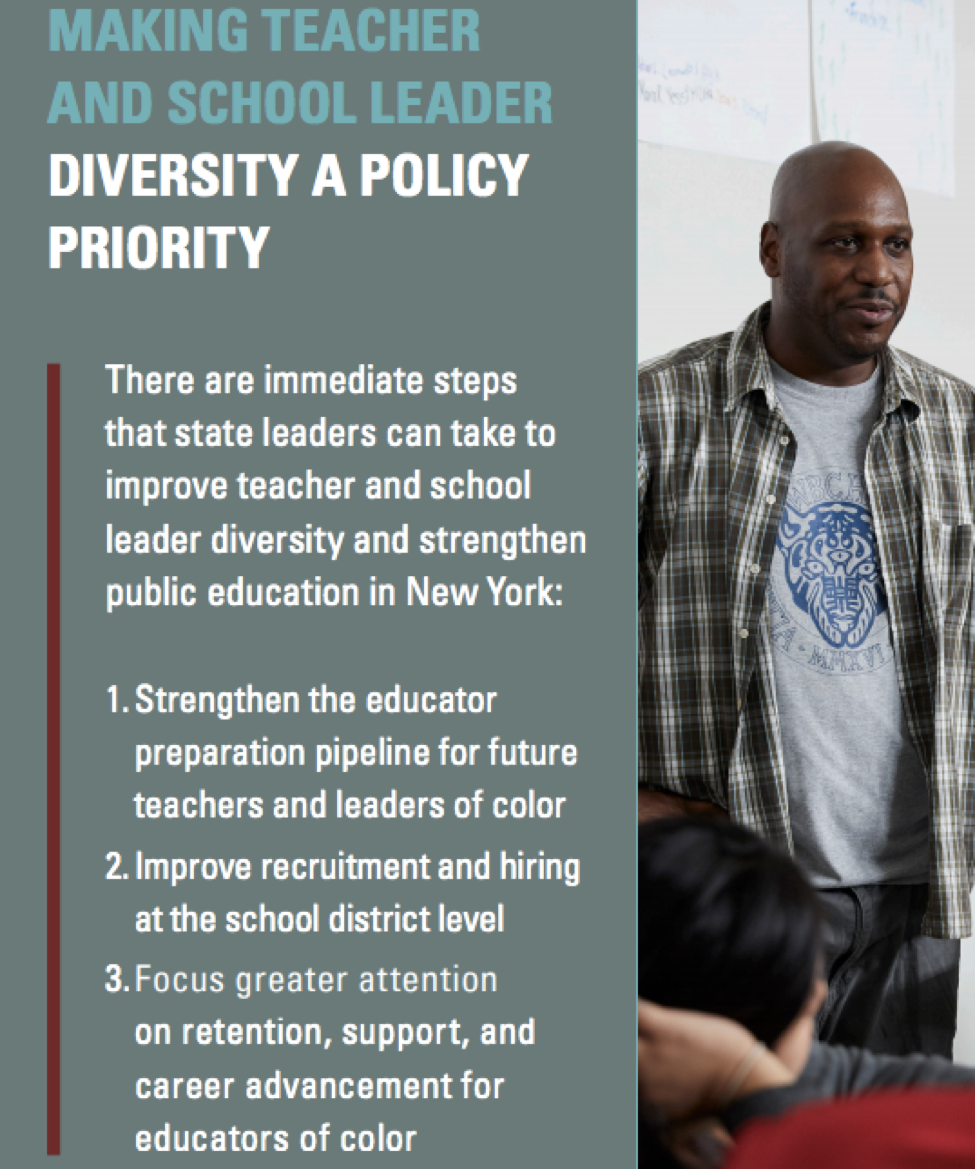Let the Statistics Speak; Minority Educators Can’t Be Left In the Backdrop

“Isolated” and “Alone” are words we try not to associate with education, but they are becoming more and more familiar for minority students (whom have become the majority in New York public schools) and their teachers. The Education Trust – New York released a new study on diversity, equity, and inclusion and its impact on the PK-12 education sector in New York. In the report, “See Our Truth; The State of Teacher and School Leader Diversity in New York, and Why It Matters for Students, Educators, and Our Future,” the Trust outlines the impact that diversity among schools can have on a neighborhood, and the devastating toll that ignoring this issue has on schools and communities. We must work together to raise the awareness and critical urgency that a diverse and talented public education sector will have if we have the dialogue and resulting action that recognizes the strengths of equity and inclusion in schools.
We strongly encourage you to read the full report, but in lieu, we have outlined some of the dire statistics:
- In New York State, for every 36 white teachers, there are 4 black and 3 Latinx teachers
- In high-needs NY districts, for every 40 white teachers there are 4 black and 4 Latinx teachers; this remains steady in most large city districts
- In New York City, for every 26 white teachers in traditional public schools, there are 7 black teachers and 7 Latinx teachers
- In New York City Charter Schools, for every 24 white teachers, there are 9 black teachers and 4 Latinx teachers
According to the Education Trust, there are 3 major steps to take that will help reform education and the needs of students:

Future Leaders Incubator, a new 501(c)(3) dedicated to school reform efforts that provide greater access and opportunity to an excellent education for students in urban communities is accepting applications for leaders and future-leaders interested in making an impact. We can no longer ignore the fact that when people of color are afforded positions within public schools, they are relegated to roles associated to culture and support, as opposed to those linked to academics, rigor, and leadership. This should not be an either-or situation, all educators add value. But all all too often, children do not have educators that are representative of their backgrounds. Aneth, a New York City student cited in the Trust’s report highlights this truth, “Our teachers of color get disrespected a lot. Like they’re not good enough.”
Aneth, a New York City student cited in the Trust’s report highlights this truth, “Our teachers of color get disrespected a lot. Like they’re not good enough.
As heartbreaking as this is, more heartbreaking is that current reform efforts fail to support underrepresented future educators until they have already been selected for a teaching position. Future Leaders Incubator takes a different approach. The FLI Educator Project works with college graduates throughout their careers, before their first day as a classroom teacher, to ensure that the barriers to education that impacted their education are able to have a positive impact on the next generation of youth. Further, FLI”s Preparatory Leadership Collaborative works with current school leaders, from all backgrounds, to discuss, address, and develop systematic change within their schools to address diversity, equity, and inclusion initiatives that will have a long-term impact for the school community.
Links to more information, please see:
– The Education Trust – New York State Summary
– The Education Trust – New York City Summary
– Future Leaders Incubator Website

